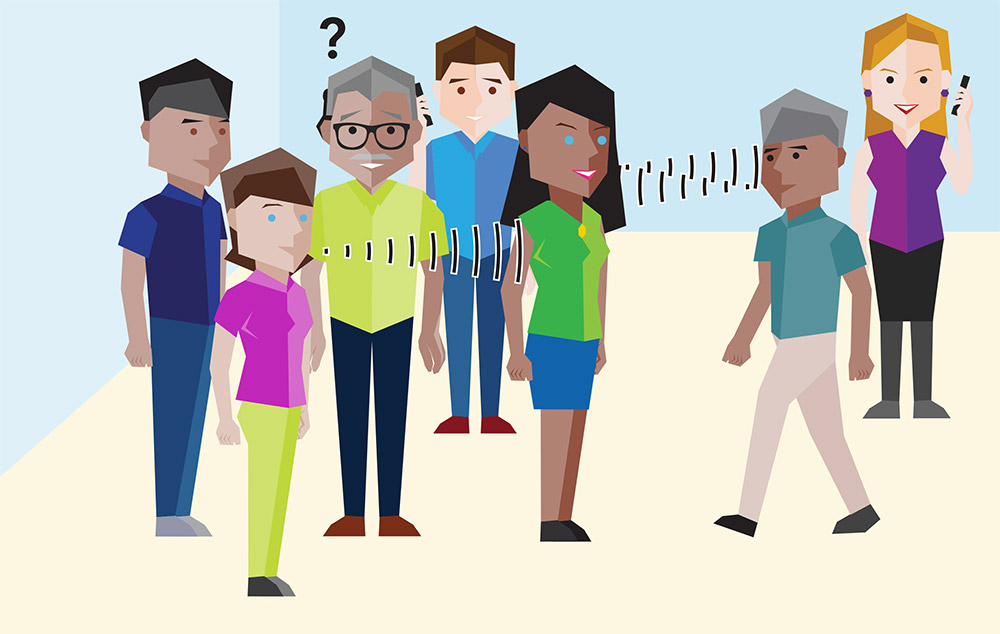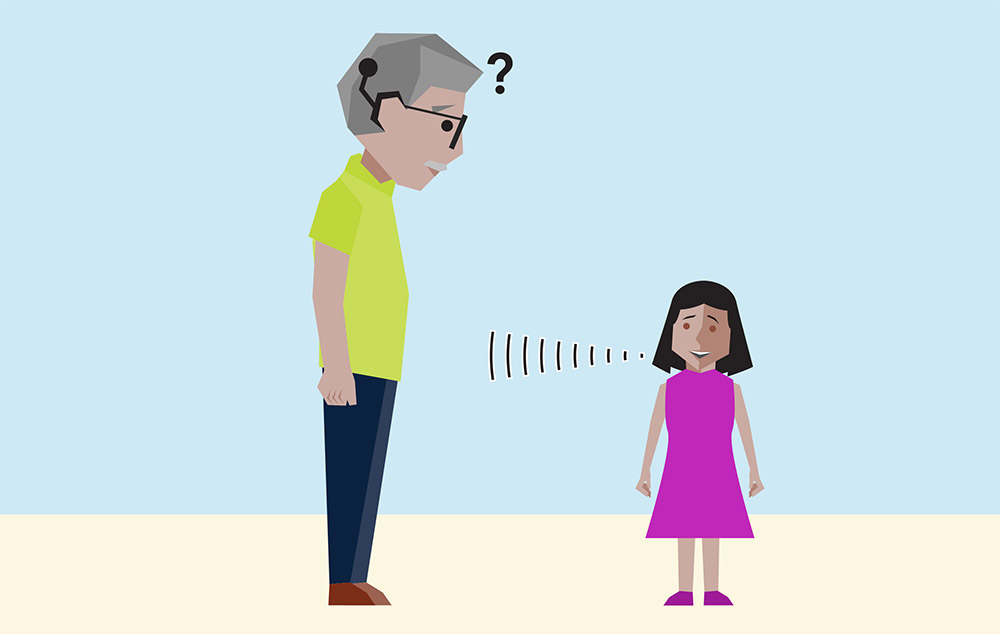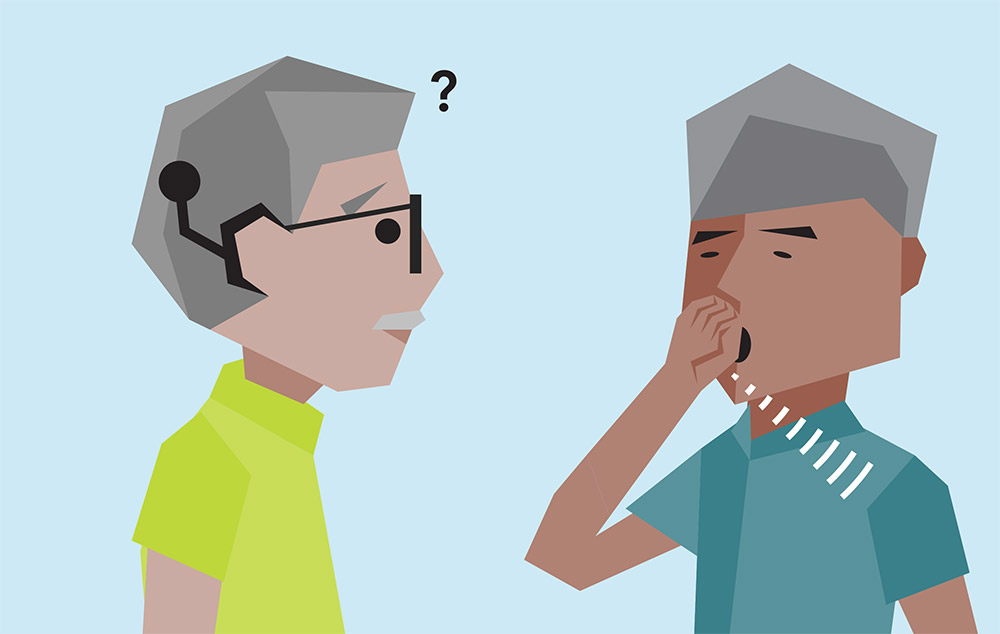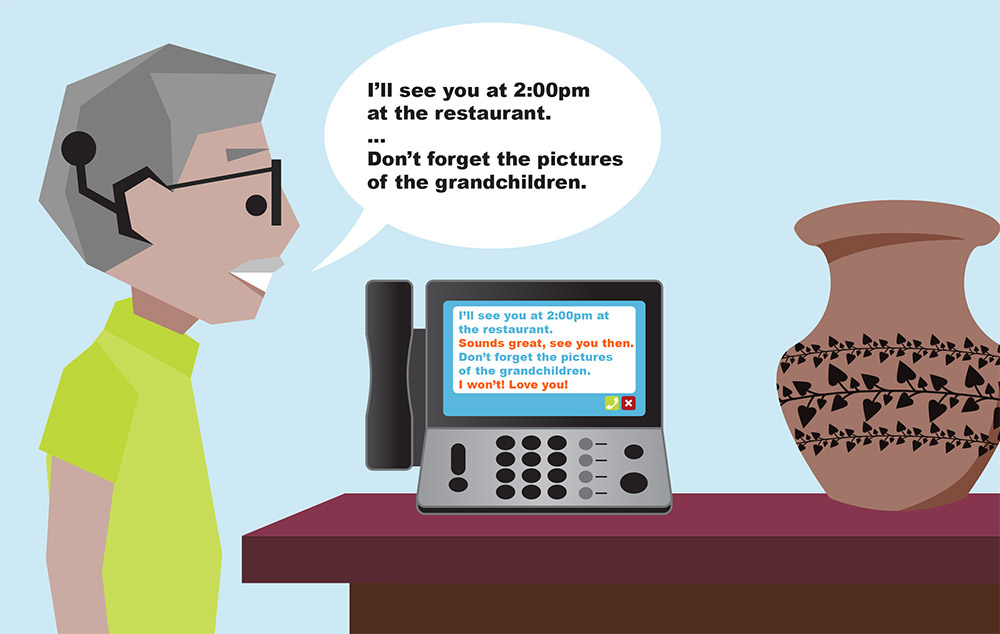Social Interactions
Key Takeaways
Social interactions are when communication becomes difficult because of a social aspect, like a speaker having an accent or speaking too quickly.
Overview
Social interactions may be a large cause of communication difficulties for adults with cochlear implants. Social interactions are when communication becomes difficult because of a social aspect, like a speaker having an accent or speaking too quickly.
Social interactions are distinct from physical environments, which are environments in which communication becomes difficult because of a physical aspect of the environment, such as lighting or background noise. Click here to learn more about physical environments.
Knowing how to overcome a difficult social interaction can make communication less stressful and more pleasant. Watch the video below to see how Robert, an adult with a cochlear implant, overcomes a difficult social interaction.
Social Interactions
Key Takeaways
Social interactions are a large cause of communication difficulties for adults with cochlear implants.
It is important to learn more about types of social interactions, and which social interactions are specifically difficult for you.
Types of Social Interactions
It is important to identify types of social interactions you commonly have and which social interactions often cause your communication difficulties. Click here to take a social interactions assessment to find out your strengths and weaknesses.
Now that you are familiar with the types of social interactions that often cause adults with cochlear implants problems, it is time to track what environments give you problems in your daily life. Click here to download a tracking log for social environments.
Social Interactions
Key Takeaways
There are specific strategies that may help you overcome difficult social interactions, such as planning ahead, changing your processor settings, using optimal communication strategies, using assistive technologies, and asking for alternative communication.
Social Interaction Strategies
There are specific strategies that may help you overcome difficult social interactions.
1. Plan ahead: If you know you will be communicating with new speakers or speakers with whom you often have difficulty, research specific strategies you will use beforehand. Visit the types of social interactions topic to learn more.
2. Change your processor settings: You should be able to manually change the volume and sensitivity to your cochlear implant on your processor or using your remote assistant. If not, you should talk to your audiologist about the specific types of speakers with whom you are struggling, and ask if they can change the processor settings on your cochlear implant.
3. Use optimal communication strategies: Make sure you and your communication partners know and understand how to optimally communicate with an adult with a cochlear implant. Click here to learn more about optimal communication strategies.
4. Use assistive technologies: There is a wide variety of assistive technologies (FM systems, audio loops, etc.) that can help you overcome difficult social interactions, such as using the telephone or participating in group discussions. Click here to learn more about assistive technologies.
5. Ask for alternative communication: Sometimes planning and using the proper communication strategies is not enough to help you hear certain speakers. In these cases, ask for written or nonverbal communication. Examples of nonverbal communication could be tapping your arm to get your attention before speaking or using signals like “thumbs up” instead of speaking.
Repetition and practice are key to overcoming difficult social interactions. Click here to download a script for dealing with difficult social interactions that you can use to practice alone or with friends and family. Building your confidence to express your needs is also an important aspect of overcoming difficult social interactions – visit the self-advocacy section to learn more.







